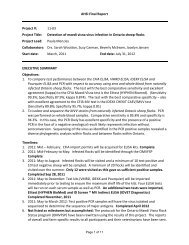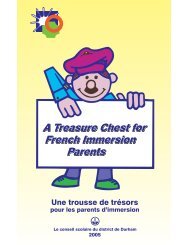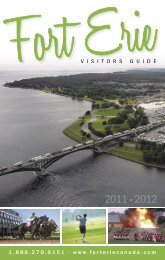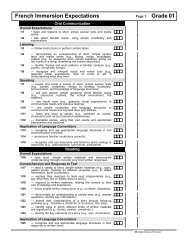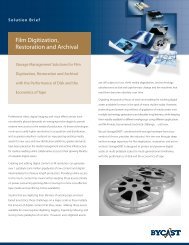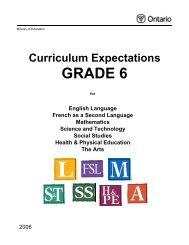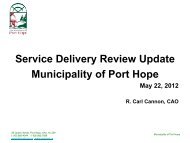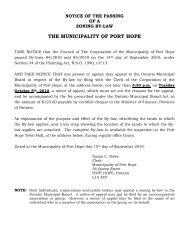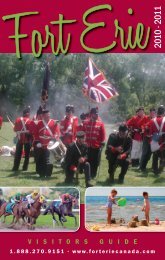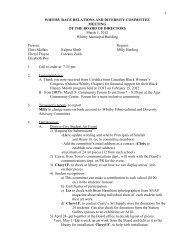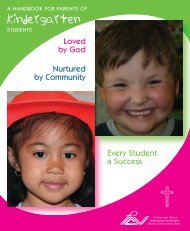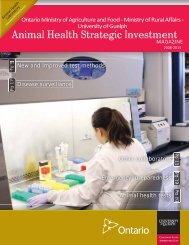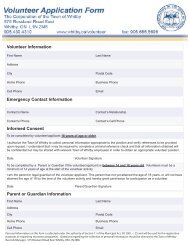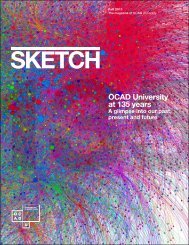GRADE 3 - PVNC Catholic District School Board
GRADE 3 - PVNC Catholic District School Board
GRADE 3 - PVNC Catholic District School Board
You also want an ePaper? Increase the reach of your titles
YUMPU automatically turns print PDFs into web optimized ePapers that Google loves.
English Language Expectations<br />
Pg. 8<br />
3e63<br />
3e64<br />
3e65<br />
3e66<br />
3e67<br />
3e68<br />
Spelling Unfamiliar Words<br />
3.2 spell unfamiliar words using a variety of strategies that involve understanding sound-symbol<br />
relationships, word structures, word meanings, and generalizations about spelling (e.g., pronounce<br />
a word as it is spelled: Wed-nes-day; make analogies to rhyming words; apply knowledge of<br />
short-vowel and long-vowel patterns; cluster words by visual similarities; follow rules for<br />
changing base words when adding common endings: hope/hoping, slam/slammed; use memory<br />
aids such as visualization)<br />
Vocabulary<br />
3.3 confirm spellings and word meanings or word choice using several different types of resources<br />
(e.g., locate words in an alphabetized personal word book or dictionary using first, second,<br />
third, and fourth letters, entry words, or pronunciation; use a variety of dictionaries, such as a<br />
rhyming dictionary or a dictionary of synonyms and antonyms; use a thesaurus to find<br />
alternative words)<br />
Punctuation<br />
3.4 use punctuation to help communicate their intended meaning, with a focus on the use of: quotation<br />
marks to indicate direct speech; commas to mark grammatical boundaries within sentences; capital<br />
letters and final punctuation to mark the beginning and end of sentences<br />
Grammar<br />
3.5 use parts of speech appropriately to communicate their meaning clearly, with a focus on the use of:<br />
proper nouns for titles (e.g., of businesses, teams); the possessive pronouns my, mine, your,<br />
yours, his, her, hers, its; action verbs in the present and simple past tenses; adjectives and adverbs;<br />
question words (e.g., when, where, why, how)<br />
Proofreading<br />
3.6 proofread and correct their writing using guidelines developed with peers and the teacher (e.g., a<br />
checklist modified in a teacher-student conference to support individual writing strengths and<br />
indicate next steps; a posted class writing guideline)<br />
Publishing<br />
3.7 use some appropriate elements of effective presentation in the finished product, including print,<br />
script, different fonts, graphics, and layout (e.g., use legible printing and some cursive writing;<br />
use different font sizes and colours on a poster to attract attention; use proper paragraph form<br />
including spacing and margins; supply captions for photographs)<br />
3e69<br />
Producing Finished Works<br />
3.8 produce pieces of published work to meet identified criteria based on the expectations related to<br />
content, organization, style, use of conventions, and use of presentation strategies<br />
4. Reflecting on Writing Skills and Strategies<br />
3e70<br />
3e71<br />
Metacognition<br />
4.1 identify what strategies they found most helpful before, during, and after writing and what steps<br />
they can take to improve as writers (e.g., use a writer’s notebook to record ideas, sources for<br />
future reference, and useful types of organizers for sorting information)<br />
Teacher prompts: “How does your writer’s notebook help you generate ideas for writing?” “How did<br />
you choose the resources you used? How were they helpful?” “What strategy did you use to organize<br />
your information before you began writing?”<br />
Interconnected Skills<br />
4.2 describe, with prompting by the teacher, how some of their skills in listening, speaking, reading,<br />
viewing, and representing help in their development as writers<br />
Teacher prompts: “How does what you know about reading help you when you are writing?” “How<br />
does listening to or viewing different kinds of texts help you generate ideas for writing?”<br />
Ministry of Education 2006



